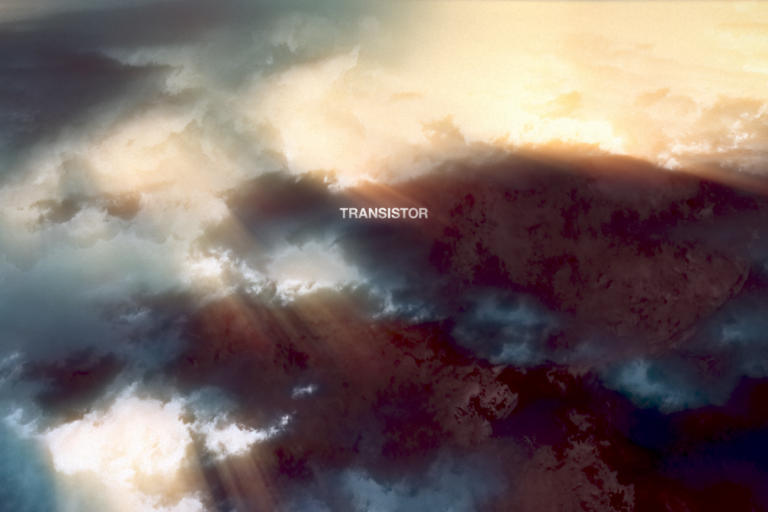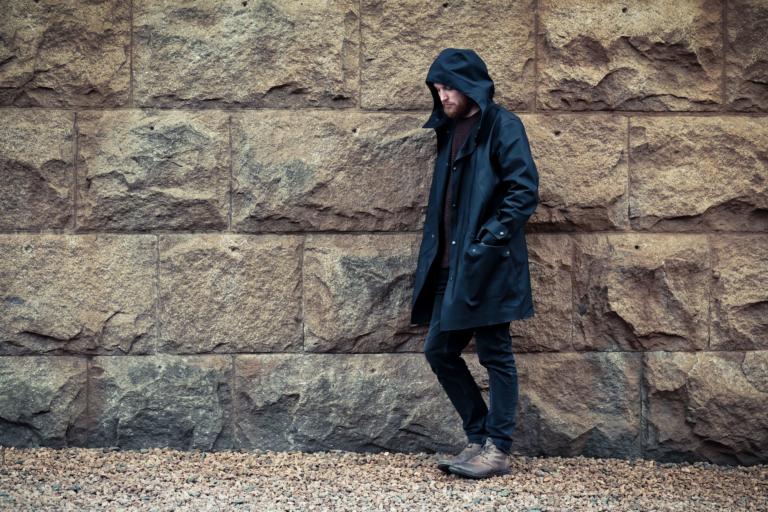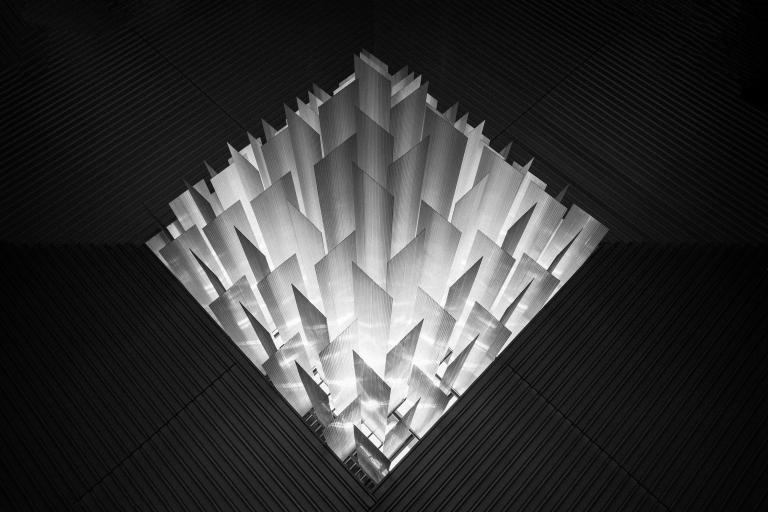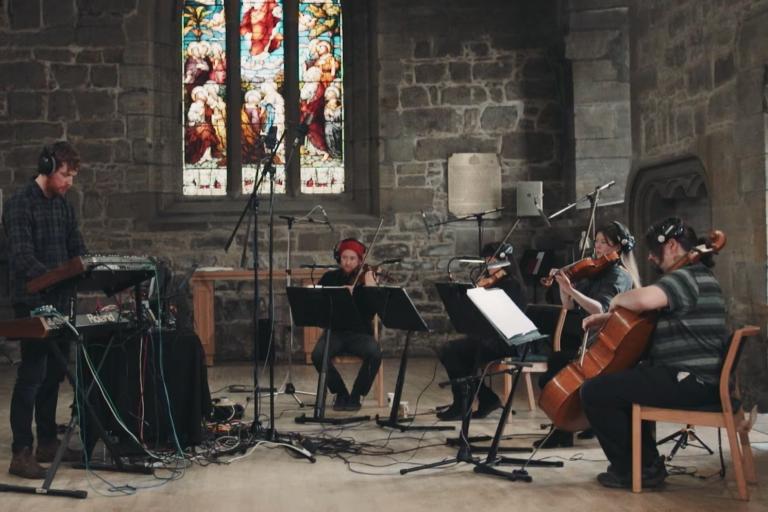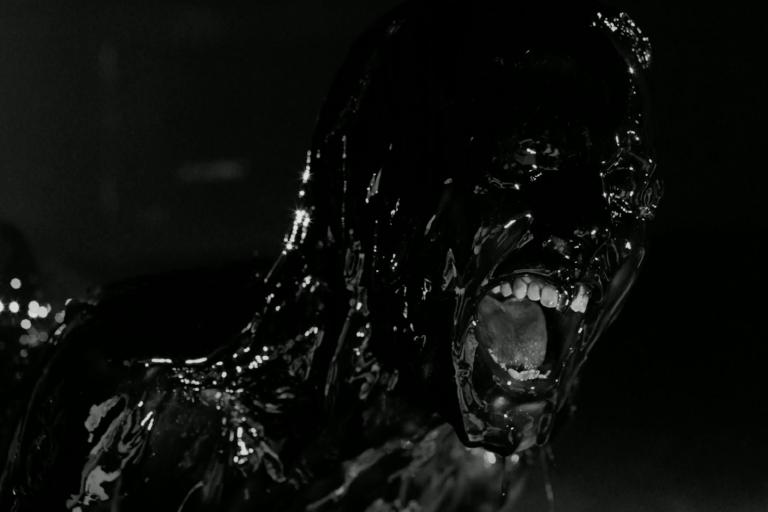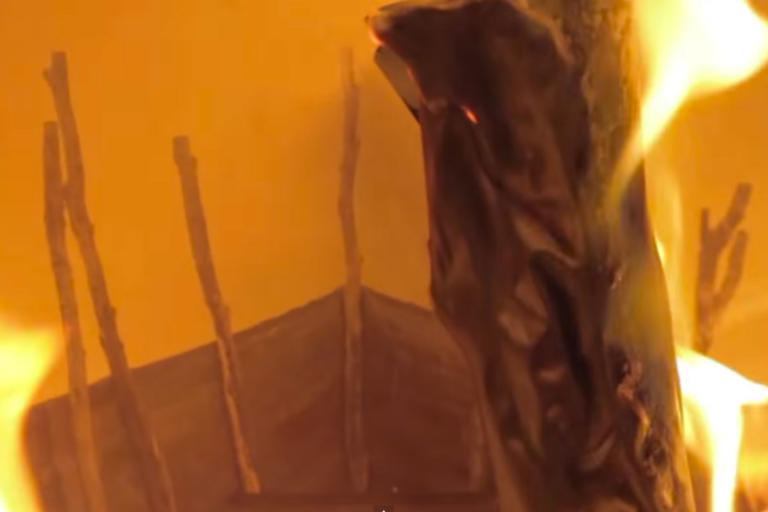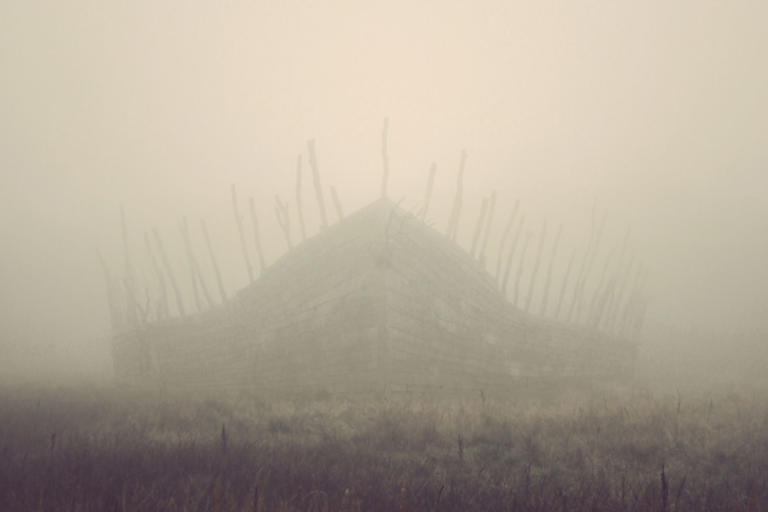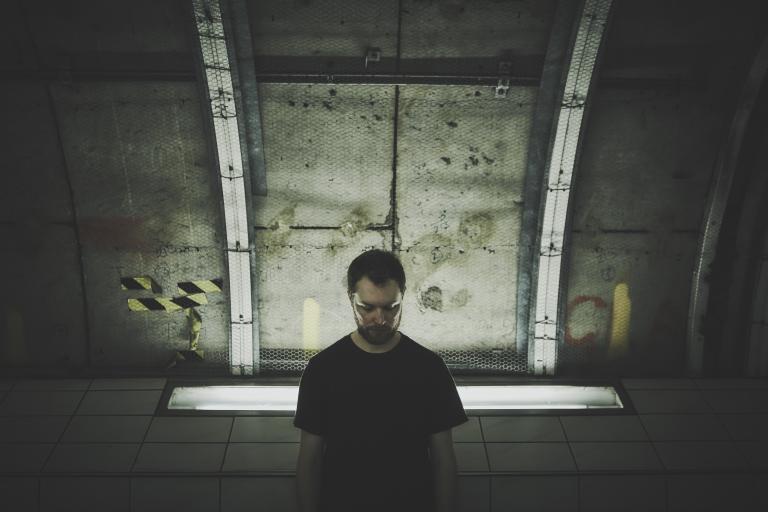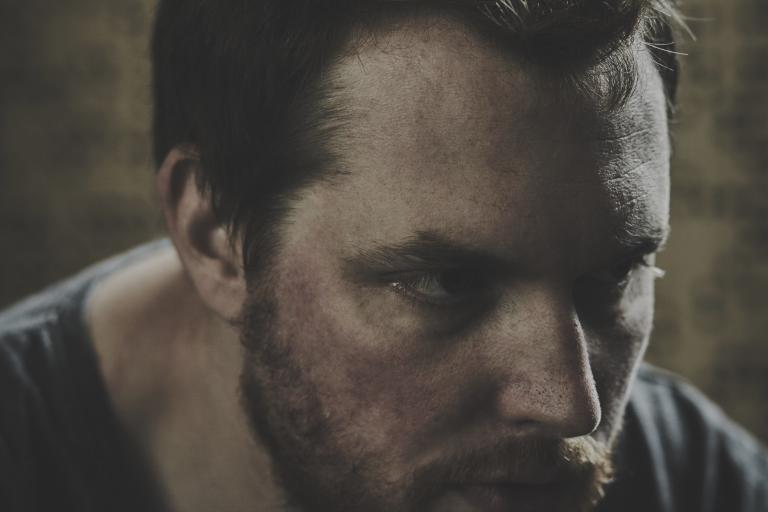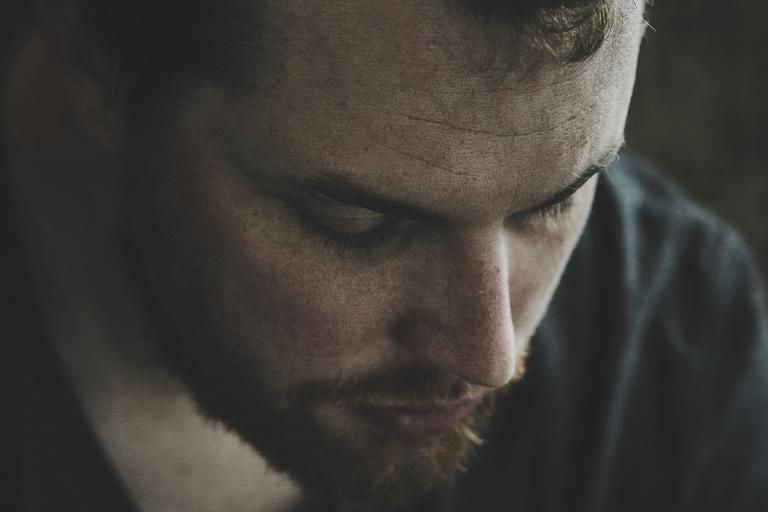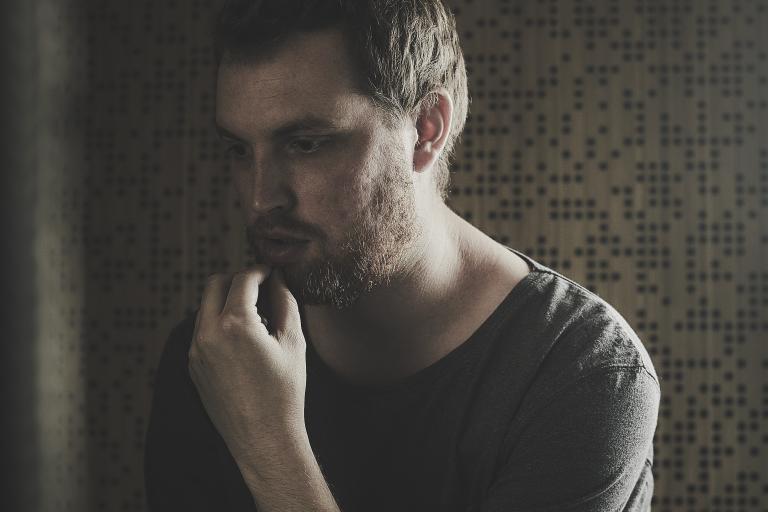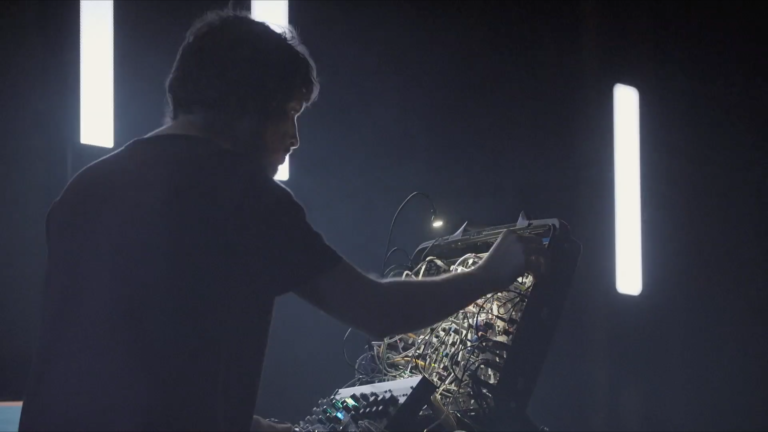Ben Chatwin
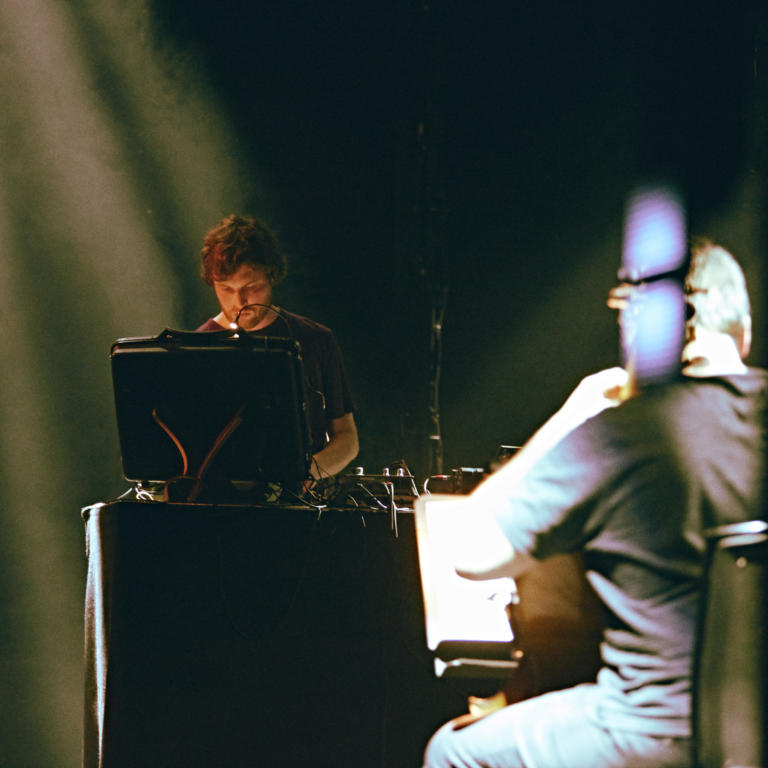
Ben Chatwin is an experimental electronic composer who works primarily with modular synths and other hardware to create densely layered soundscapes with sweeping emotional resonances. His music combines brutalist rhythms with drifting strings and synths, to create music that is once abstract and cinematic.
Ben has now released roughly an album a year for over a decade. The Hum (Village Green) will be his seventh release under his own name, and his thirteenth in total. Previously, he released under the name Talvihorros, as well as working on remixes, collaborations and split releases.
His music explores the tension between electronic music and acoustic composition, and he plays a number of instruments he has taught himself along the way. His powerful aesthetic is underpinned with a commitment to bold concepts and arresting ideas, from the ambitious Signals trilogy (Village Green), where he looked to relinquish control of his music by giving it to other producers and surrendering it to technology, to The Sleeper Awakes (Village Green), an album inspired by the writing of H.G. Wells. His final album as Talvihorros was Eaten Alive (Fluid Audio) an album about drug addiction and homelessness in East London.
Ben first began working under his own name when he moved from London to Scotland, first to Edinburgh, then Queensferry. As he reconnected with his music, found solace in nature and walking, he also gained a new confidence and commitment in his work. "It felt like a new start moving up here, I felt like I had more space, it's had a big influence on how I compose. As I began walking more and enjoying nature, everything felt different, including music making. It always felt like I was hiding behind a pseudonym, but then I realised this was something I was going to do for the rest of my life."
Ben now works from his home studio, The Vennel, a den he's been filling with esoteric and broken instruments for the last 20 years. His treasure trove of oddities includes a 19th century dulcitone, a metallophone, harmoniums, heavily modded guitars, toy Casios, 8bit samplers, and his favourite, a Minibrute covered in grime. He collects instruments that have an unpredictable quality, which can bring an element of the unknown into his compositional process, and often lead to the sonic unlocking of what otherwise would be discarded equipment.
Ben first began making music after the life-changing realisation that he wanted to be a composer as a teenager. The bolt came out of the blue – he did not play an instrument, although he was an all-consuming listener. Driven by determination to succeed, he dropped everything, quit his studies, and began to teach himself. People around him thought he was throwing his life away, but he persevered. He developed his own sound through devouring huge amounts of music, film and literature, until he found a gap between what he was listening to and what he wanted to hear. "I was honing in," he says. "When I got to the point where I couldn't find what I wanted, that was where my sound came in."
His compositions are now rooted in experimental electronic practices, from the broken equipment and glitches of artists like Pole and Oval to the immersive sounds of artists like Tim Hecker, Labradford and Grouper, as well as working with modular and often on tape, Ben's music is one with a distinctive sound and patina, whether it soothes with snowdrifts of drone or makes sound physical with colossal shards of vibrational feedback.
He is driven by the deep pleasure he finds in composing, and has performed live internationally, from festivals including Le Guess Who? (NL) Celtic Connections (Glasgow) Incubate (NL) and Fields (Moscow) to performances at the Southbank and collaborations in dance with The Scottish Ballet, Company Chameleon, and Alexander Whitley.
"The process of making music is a healing one for me," he says. " I enjoy it immensely, and it is spiritual in a way. When it all flows, I can lose hours. I don't get that feeling from anything else."
Releases
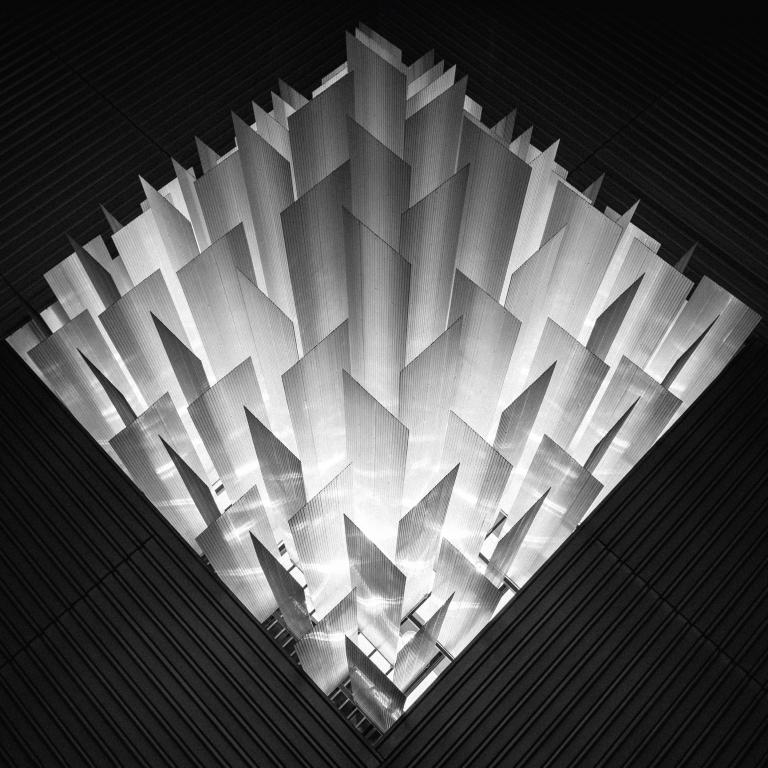
Altered Signals
Ben Chatwin
LP / Digital
Following the release of 2018’s acclaimed pair of albums Staccato Signals and Drone Signals, Ben Chatwin returns in April 2019 with Altered Signals. As the title suggests, Ben has enlisted the talents and imaginations of a host of electronic producers to reconfigure the original ten compositions featured on Staccato Signals, injecting new life into a project already seething with texture, dynamism and emotion.
Strictly speaking, this is the second ‘remix’ album of the Signals project - with Drone Signals, Ben already took the material in one direction by feeding string parts into an array of modular and analogue synthesisers. With this new album, he once again relinquishes control - a central conceptual underpinning of the project - by working with some of his favourite producers working in the electronic world.
Though the music ranges from ambient to acid techno, this is nevertheless a dynamic and cohesive work that’s sure to excite fans of both of Staccato Signals and Drone Signals.

Ben Chatwin initially set out to make a purely electronic record with ‘Staccato Signals’, using primarily analogue and modular synthesisers, harnessing the unpredictability of hardware sequencers to write melodic lines rather than by hand with a keyboard. This was about giving up control to the machines – ultimately making them more of a collaborator than a tool. However, towards the end of its writing, not satisfied with the results, Ben was overcome with the feeling that he needed to push what he had created further into new territory, in order to invent entirely new sounds and textures. He decided to work with a string quartet, exploring innovative ways to fold, bury and combine both strings and brass into his industrial, noisy and chaotic electronic template. Again, this was about giving up control – working with other musicians, allowing them to improvise and arrange parts in order to find those special moments where something unexpected happens. The writing process became a search for those moments, the short, sharp flashes of inspiration – the staccato signals.
“I’ve learned that my most rewarding music arises when I switch off my brain and just let things happen. It can feel like waiting for these signals that are out there somewhere in the ether to strike. The less I think about, it the more likely it is to happen.” - Ben Chatwin
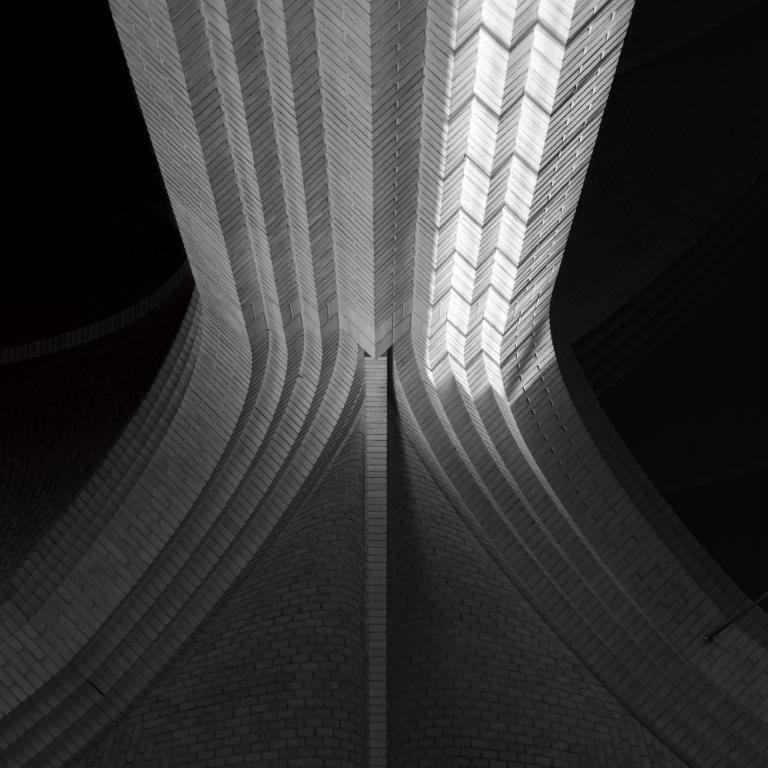
Feeding recordings of strings through an array of modular synthesisers and utilising modern sampling and granular synthesis, Chatwin remoulds ‘Staccato Signals’ into new microscopic electronic textures - 'Drone Signals'.
Unlike the original album, where Ben started with a blank slate and built the music up layer by layer finishing with the string quartet, this time the process began with everything on hand. The task became dismantling the tracks – stripping them apart to see what was left, letting certain sounds or instruments become the focus, and then rebuilding the arrangements around them. This allowed elements to breathe, yet also to become more static. The less chaotic and more ambient nature of these pieces suggested a related album of versions, a conceptual sibling.
In this way, ‘Drone Signals’ might best be understood as the aftermath of ‘Staccato Signals’, retaining much that made the latter such a rewarding album – it's mournful beauty, the tense, ambiguous relationship between electronic and acoustic elements, and a delicate if not volatile balance between elegance and intensity. However this time the palette is broader and more static – concerned more with monolithic structures than with sharp edges.
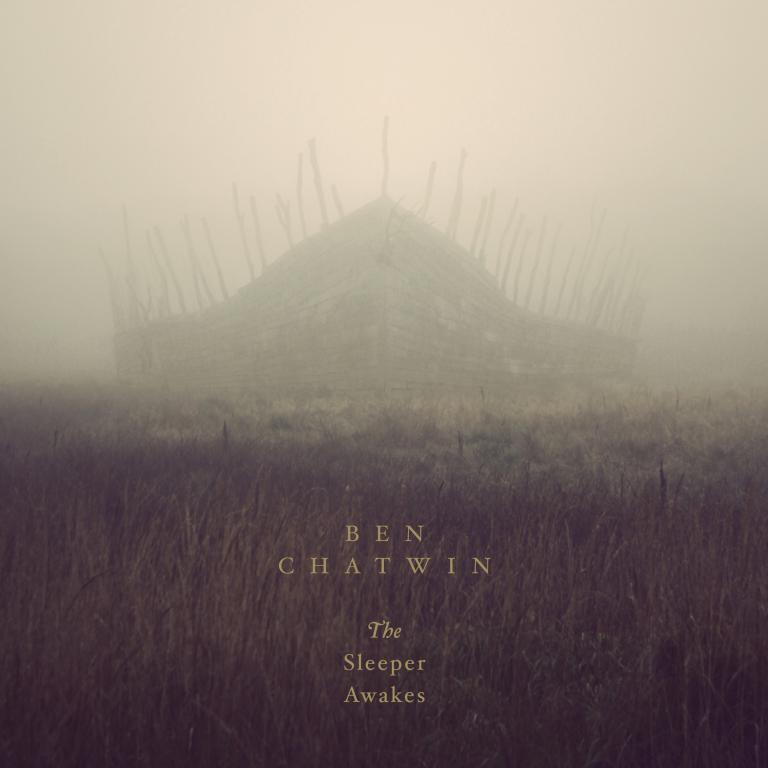
The Sleeper Awakes
Ben Chatwin
DL / CD / LP
Composer and producer Ben Chatwin releases his new album 'The Sleeper Awakes' through Village Green on 4th May 2015. Written and recorded at Chatwin's home studio in Scotland. Inspired by the writing of H.G. Wells, 'The Sleeper Awakes' is Chatwin's first album to appear under his own name and follows last year's highly-lauded Talvihorros project 'Eaten Alive'. "I wanted 'The Sleeper Awakes' to represent the idea of a future that has been and gone. Before the information and telecommunications revolution there was a beautiful yet weird, naivety about what the future might bring and it was this that I tried to tap into whilst making the record. I sourced a one hundred-year-old Dulcitone (a kind of portable piano that was made for a short period of time in Glasgow at the turn of the Twentieth Century) and used it extensively, making it sit with modern electronics and synthesis. The pairing of older, traditional instruments with modern recording techniques and processes is something that I'm very interested in."
News View All >
Watch new video 'Transistor' from Ben Chatwin
23.09.20
The artist's first single from forthcoming album THE HUM
